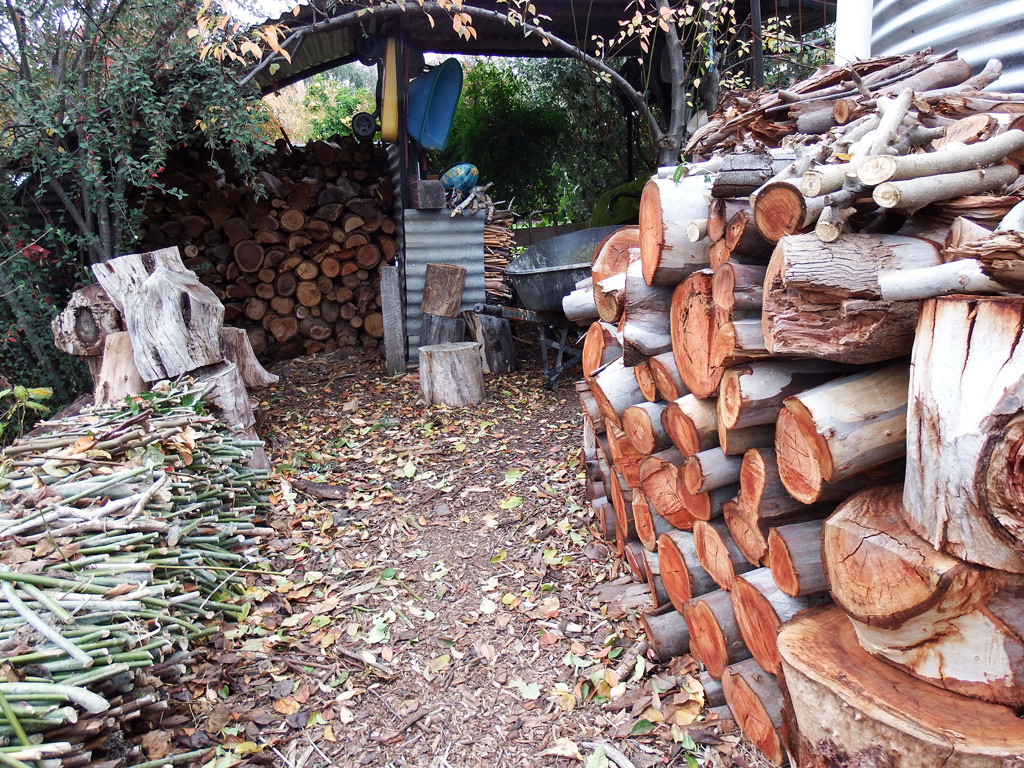Classwork 6
REDD+ Experiment — Money Growing on Trees
Overview
You are a household in the beautiful but low-income tropical country of Ephoria.
You live in a rural area on the margin of a forest. Over the last few decades, expansion of agriculture and urban areas has reduced forest cover and put pressure on local resources.
Your small, traditional community survives mainly through:
- Subsistence farming (gardens for food)
- Harvesting wood and non-timber forest products (fruits, nuts, medicinal plants, bark, fish, and game)

Tropical forest ecosystem

Forest degradation from wood harvesting
Wood is used for cooking and heating, but contributes to deforestation and climate change.
If you don’t harvest wood, you must either do without or buy replacement goods on the market.
Your Card and Harvest Value
Each participant receives a playing card:
- Number cards (1–10): harvesting value = $10 × card number
- Face cards or Jokers: harvesting value = $0
Harvest values differ because of variations in household needs, family size, and access to forest areas.
Policy Context
To fight deforestation and raise revenue, Ephoria’s policymakers are experimenting with Payments for Ecosystem Services (PES) through an international REDD+ program.
- Local households/communities sign PES contracts.
- Foreign buyers purchase avoided-deforestation credits to offset emissions.
You will play through several contract periods, each representing a different policy environment.
Payment Mechanism (Real Incentives)
To make decisions realistic, two random participants will be selected at the end of the experiment to receive real payments based on their total earnings across all rounds:
\[ \text{Real Payment} = \frac{\text{Total Experimental Earnings}}{100} \]
Typically, this amounts to about $3–$9 per winner.
Your Earnings Formula
\[ (\text{Earnings}) = (\text{Farming Income}) + (\text{PES Payment}) + (\text{Forest Harvesting}) - (\text{Policing or Fines}) \]
Farming income of $70 is automatically granted to every household each period.
Income Components
| Component | Description | Default Value |
|---|---|---|
| Farming Income | Automatic subsistence income from your land plot | $70 |
| PES Payment | Payment for entering PES contract | $50 |
| Forest Harvesting | $10 × card number (if not in PES) | varies |
If total earnings < $75, your family cannot eat for a day (conceptually unpleasant!).
Experiment
Contract Periods (CP)
Period 0 — Baseline
- PES contracts not available.
- Decision: Harvest wood or not.
- Earnings as defined above.
CP0 - Payment Recording
| CP | Conditions | PES / Harvest? | Illegal Harvest? | Audited? | A: Farming | B: PES | C: Harvest | D: Fines | Earnings = A + C |
|---|---|---|---|---|---|---|---|---|---|
| 0 | Baseline | Harvest / No | $70 | $ |
CP0 - Experiment
Period 1 — Payments for Ecosystem Services (PES)
- PES contracts available at $50 income.
- If you take PES, you cannot harvest.
- No illegal harvest is possible.
CP1 - Payment Recording
| CP | Conditions | PES / Harvest? | Illegal Harvest? | Audited? | A: Farming | B: PES | C: Harvest | D: Fines | Earnings = A + B + C |
|---|---|---|---|---|---|---|---|---|---|
| 1 | PES | PES / No | $70 | $ | $ |
CP1 - Experiment
Period 2 — PES + Illegal Harvest
- PES income = $50.
- You may illegally harvest after signing PES.
- Each contract audited with 25 % probability.
- If audited and caught:
- Lose PES income
- Lose harvest earnings
- Pay fine of $70
- Lose PES income
CP2 - Payment Recording
| CP | Conditions | PES / Harvest? | Illegal Harvest? | Audited? | A: Farming | B: PES | C: Harvest | D: Fines | Earnings = A + B + C – D |
|---|---|---|---|---|---|---|---|---|---|
| 2 | Illegal Harvest | PES / No | Y / N | Y / N | $70 | $ | $ | $ |
CP2 - Experiment
Period 3 — Community Contract
- Participants form a community of 4-5 members (randomly assigned).
- Each community jointly decides:
- Whether to enter the PES contract.
- If the community joins PES, the community receives a total PES income equal to
\[ \$50 \times (\text{number of households in the community}) \] - The community must then decide how to divide this total PES income among its members.
- Whether to enter the PES contract.
- If the community joins PES → no one may harvest.
CP3 - Payment Recording
| CP | Conditions | PES / Harvest? | Illegal Harvest? | Audited? | A: Farming | B: PES | C: Harvest | D: Fines | Earnings = A + B + C |
|---|---|---|---|---|---|---|---|---|---|
| 3 | Community | PES / No | $70 | $ | $ |
CP3 - Experiment
Period 4 — Community Contract + Illegal Harvest
- Same communities as in Period 3.
- Community Decisions:
- Join PES?
- If yes → Police the group? (cost = $5 per household)
- If policing → no household harvests illegally.
- If no policing → each household privately decides Harvest illegally or not.
- Join PES?
Audit Rule
- Audits occur at community level only when joining PES.
- Audit probability = 10 % × (# of illegal harvesters).
- If audited and any illegal harvest is found:
- PES payments void for everyone.
- All harvests confiscated.
- Each household fined $70.
- PES payments void for everyone.
Order of Actions (Period 4)
- Community decides whether to join PES.
- If yes → community decides whether to police.
- If no policing → households privately decide whether to harvest illegally.
- Government may audit (probability as above).
CP4 - Payment Recording
| CP | Conditions | PES / Harvest? | Illegal Harvest? | Audited? | A: Farming | B: PES | C: Harvest | D: Fines/Policing | Earnings = A + B + C – D |
|---|---|---|---|---|---|---|---|---|---|
| 4 | Comm + Illegal Harvest | PES / No | Y / N | Y / N | $70 | $ | $ | $ |
CP4 - Experiment
Recording Sheet
| CP | Conditions | PES / Harvest? | Illegal Harvest? | Audited? | A: Farming | B: PES | C: Harvest | D: Fines | Earnings = A + B + C – D |
|---|---|---|---|---|---|---|---|---|---|
| 0 | Baseline | Harvest / No | $70 | ||||||
| 1 | PES | PES / No | $70 | $ | $ | $ | |||
| 2 | Illegal Harvest | PES / No | Y / N | Y / N | $70 | $ | $ | $ | |
| 3 | Community | PES / No | $70 | $ | $ | $ | |||
| 4 | Comm + Illegal Harvest | PES / No | Y / N | Y / N | $70 | $ | $ | $ | |
| TOTAL | $ |
Note: If you illegally harvest and are audited, cross out columns B and C for that round – both become zero.
Reference
- Dissanayake, S. T. M., & Jacobson, S. A. (2021). Money growing on trees: A classroom game about payments for ecosystem services and tropical deforestation. The Journal of Economic Education, 52(3), 192–217. https://doi.org/10.1080/00220485.2021.1925183
